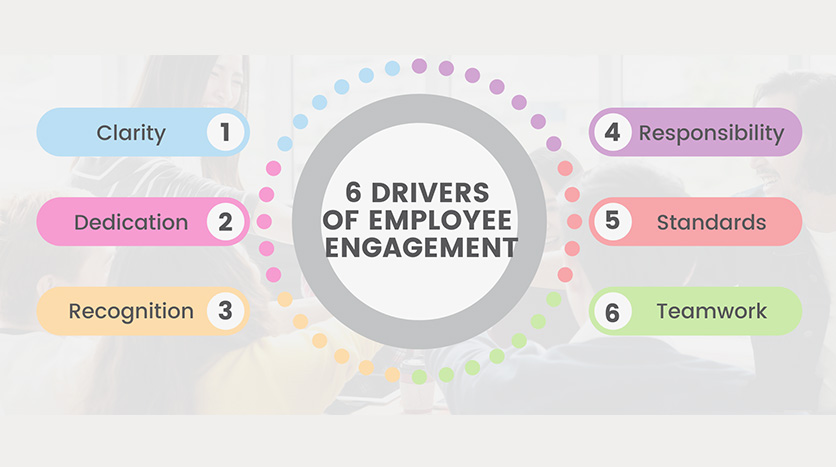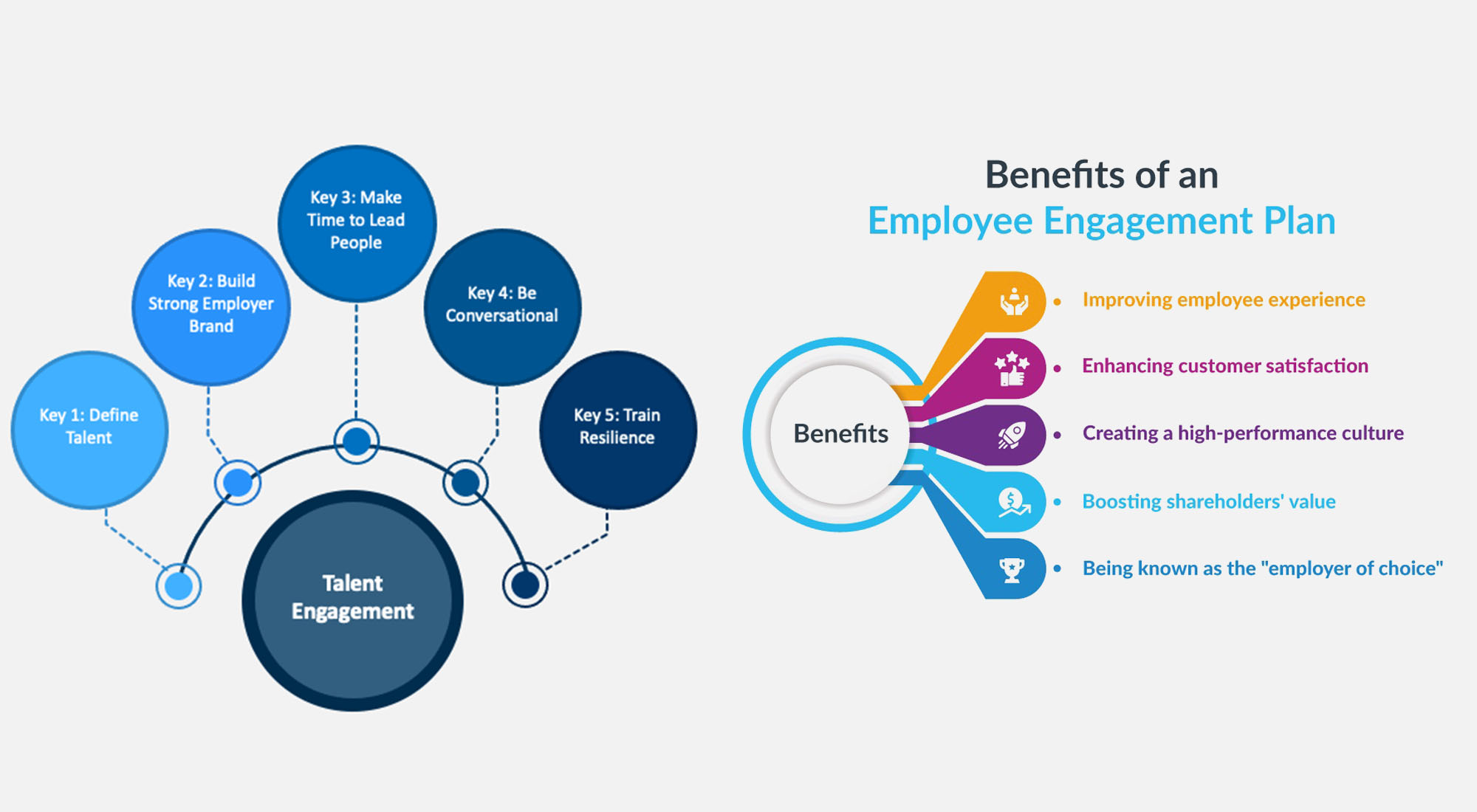Talent Engagement

After reading this guide, you will be able to improve employee engagement in your organization for both general and remote workers.
With workers being away from direct supervision, employee engagement becomes that much more important, as an engaged employee is one who can be trusted to competently, consistently perform their job, often going above and beyond their job description to make sure that they are delivering high-quality results.

What is employee engagement?
An engaged employee is driven to help their organization succeed by directing their best efforts towards their work. They believe in the organization, and they will work to make sure that the organization succeeds.
It is important to note that employee engagement is different from employee satisfaction. A satisfied employee will not necessarily commit extra time and effort into the organization’s success, rather they will perform their job competently without expending extra effort.
Job satisfaction tends to be transactional, corresponding to salary and benefits. Employee engagement is not transactional; an employee with a higher salary will not necessarily be an engaged employee.
Why is employee engagement important?
Employee engagement can massively aid an organization, and organizations with engaged employees consistently outperform their competitors.
The benefits of employee engagement within an organization:
1. Better customer satisfaction
Engaged employees will go above and beyond to provide great service to customers. They will take pride in performing their jobs to the best of their ability.
This could mean that a salesperson takes extra time out of their day to walk a potential customer through the product, a programmer works overtime to rid bugs from a client’s new program, or a retail clerk helps customers find the perfect fit of jeans, no matter how long it takes.
Customers who receive great service will both return and tell others about their experience, increasing customer loyalty for your organization.
2. Improved productivity and efficiency
An engaged employee wants their work to benefit the organization, so they will find ways to produce great quality work quickly. While an employee who is not engaged might simply want to come in and collect a paycheck with the least amount of work, an engaged employee will use discretionary effort to make sure that their work yields the highest result.
3. Reduction of staff turnover
This is another example of how employee engagement and employee satisfaction are different. An employee might be very satisfied with their job but they will happily take another job if offered a nice raise. Studies show that employee retention is a challenge, with 81% of small businesses recognizing turnover as a costly problem. When an employee leaves, it can disrupt services, costing the organization money and upsetting clients, and replacing a lost employee can cost up to 40% of a salary.
If an employee is truly engaged, they will not want to leave their role, as they want to continue helping the organization reach its goals. They won’t be tempted to look for other work, because they are mentally and emotionally connected with the work that they are already doing.
Employee engagement leads directly to better staff retention, especially of top performers, which has become increasingly important, and difficult, with today’s hyper-mobile workforce.
4. Lowered absenteeism
Continuing from the above point, another benefit of employee engagement is that engaged employees will want to come into work, as they believe in what they are doing.
They are less likely to miss work, and will even make an effort to work on their own time.
5. Enhanced company culture
Company culture is massively important to employees, and a bad culture can break an organization.
When employees are properly engaged with the organization, they understand their own importance in the company, as well as others, and are far more likely to take time to help train, advise, and lead those around them.
They are invested in the organization’s success, which is built by employees, so they will make sure that other employees are able to contribute to that success effectively.
7. Better business outcomes
Companies that have engaged workers report 21% higher profitability and were scored 17% higher on productivity.
Engaged employees work harder, doing a better job, driving up customer satisfaction and loyalty, and bringing a great deal of value into the organization.
Engaged employees will increase profitability through their work, and often lead innovation within their team, department, or organization.
8. Decrease number of safety incidents
Engaged employees pay attention to what they are doing, because they care about doing their job right. Workers will be more mindful of their surroundings and actions, and will go the extra mile to perform their duties correctly.
Engagement also increases innovation, with workers offering solutions to avoid safety incidents in the future, streamlining processes and increasing productivity.
